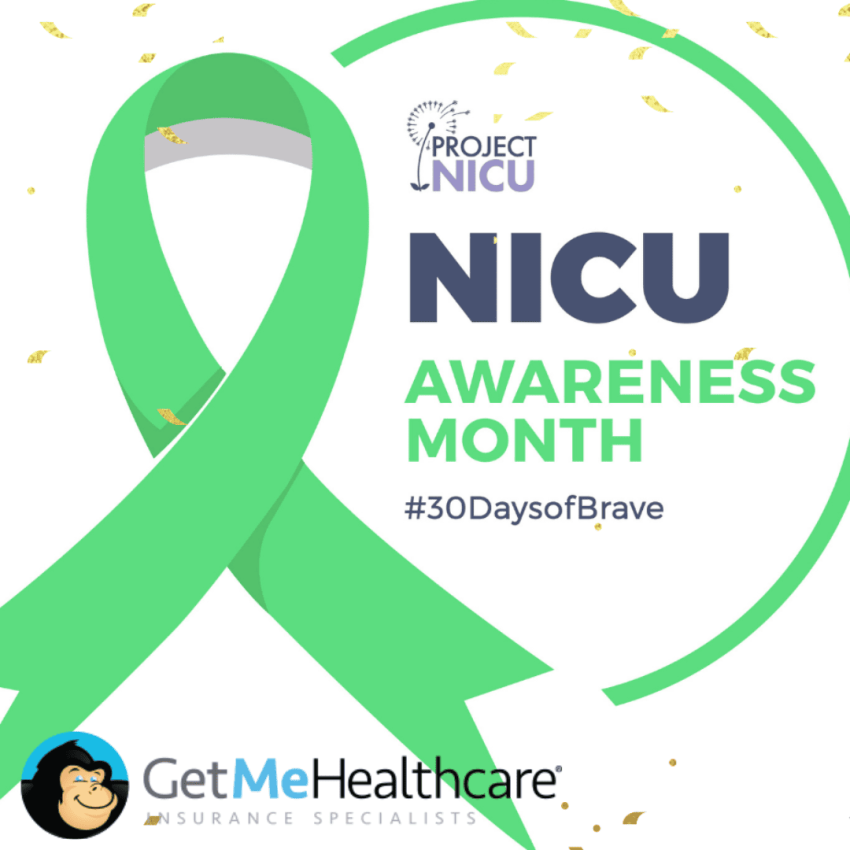September is NICU Awareness Month

Join us in celebrating and raising awareness for the tiniest fighters among us – the brave infants and their families in the Neonatal Intensive Care Units.
Welcome to Neonatal Intensive Care Awareness Month!
September is NICU Awareness Month, a crucial time set aside to shed light on the experiences of families and healthcare providers involved in neonatal intensive care units (NICUs). Project Sweet Peas established National Neonatal Intensive Care Awareness Month in 2014. Volunteers with personal experience with the NICU comprise Project Sweet Peas and provide support for families of premature and sick babies. https://www.nicuawareness.org/
It serves as an opportunity to provide educational resources, extend emotional support, and acknowledge the relentless commitment of medical staff in this specialized field. In this post we’ll provide a glimpse into the NICU – what to expect, what to know, and how you can help parents with children who are patients.
What to Expect in the NICU
The NICU is more than just a ward in a hospital; it’s a haven where new lives fight their first battles, assisted by cutting-edge technology and dedicated healthcare professionals. Upon entering the NICU, you’ll encounter a range of advanced medical equipment, such as radiant warmers, incubators, monitors, and ventilators, all aimed at providing specialized care for premature or ill newborns. The environment is highly sanitized and organized, designed to reduce the risk of infection. Lighting and sound are also a big concern in the NICU, so expect a low-lighting environment and remember to use your quiet, inside voice.
Why do we people need NICU?
When a baby is born prematurely or is sick upon delivery, they most likely need to spend time in the NICU. In the NICU, trained nurses provide around-the-clock care to premature or sick babies. Doctors who work with these babies are called neonatologists. Up to 15 percent of all babies born in the United States will require care in the NICU. Their average length of stay is just over 13 days. Babies born very prematurely, some weighing only ounces upon birth, can expect to stay in the NICU for several weeks.
History of NICU’s in the United States
The first NICUs in the United States came into existence in 1922. However, it wasn’t until many years later the care for these tiny and sickly babies greatly improved. Beginning in the 1950s, doctors began to realize that heat, humidity, and a steady supply of oxygen could improve a premature baby’s survival rates.
The survival rates continued to improve further when studies showed the importance of parent involvement. NICU nurses began encouraging parents to take a more active role in caring for their babies in the NICU.
This included having the parents change their baby’s diaper, feed them, and bathe them. Another way parents take an active role is through skin-to-skin contact with their baby. Skin-to-skin contact is called Kangaroo Care and is known to stabilize a baby’s heart rate, improve their oxygen saturation levels, and improve sleep.
How to observe #NationalNICAMonth
If you know parents who have a baby in the NICU, offer them a word of encouragement. Show your support in other ways, too. Get involved in a fundraiser for your local NICU or take a NICU nurse out for lunch. This is also a great month to donate blankets, preemie clothes, and booties to a NICU. If your baby was premature, share your experiences. Use #NationalNeonatalIntensiveAwarenessMonth to share on social media. https://twitter.com/getmehealthcare

nationaldaycalendar.com nicuawareness.org int-bio.com




